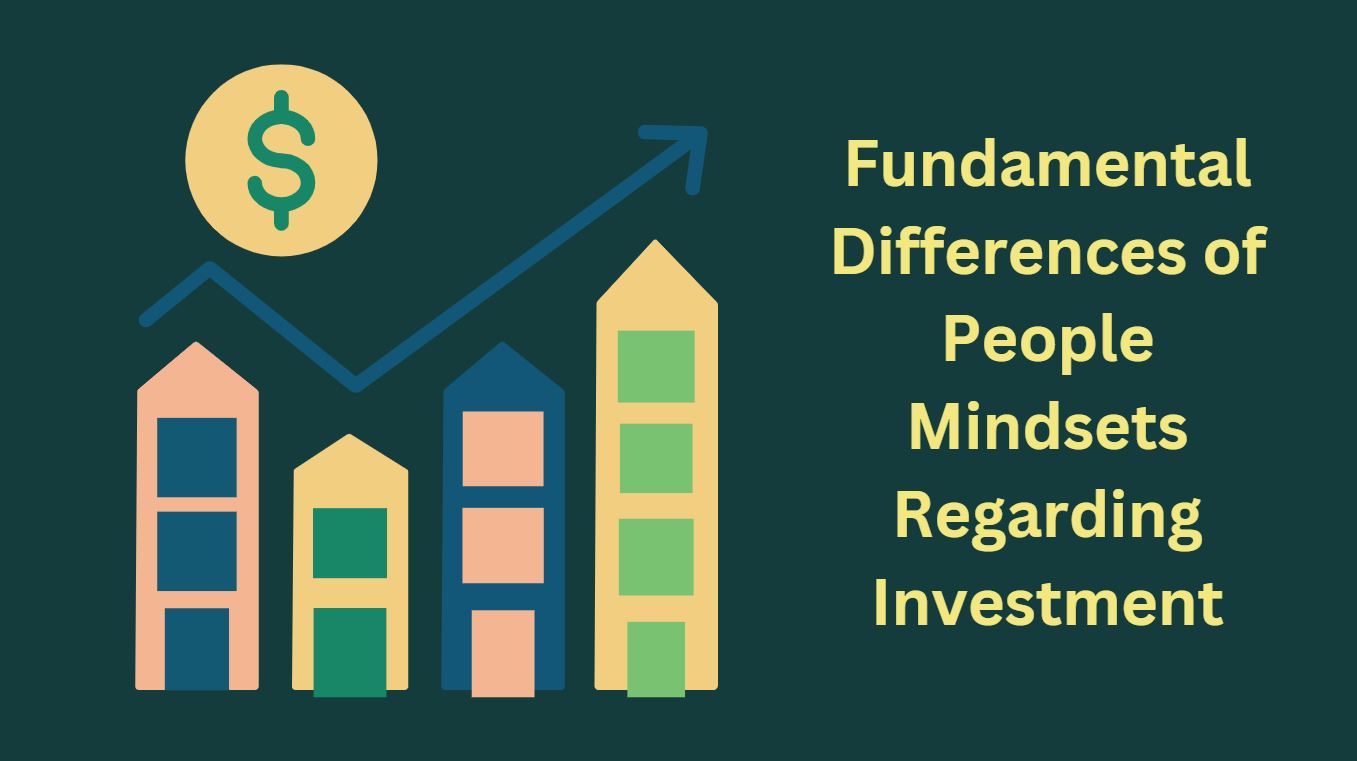Fundamental Differences of People Mindsets Regarding Investment

What is the one important factor that is a strong precursor to shifts in investment preferences and financial planning models? Among other factors, Culture plays a very important part. We have all heard of the generation gap and how the millennial individuals have a different approach to life. In a very subtle way, a lot of things have changed. There are changes in terms of technology readiness; there are changes in terms of lifestyle; there are changes in terms of approach to health and there is a change in terms of approach to physical and emotional fitness. But, more importantly, there is a shift in terms of how the generation of 2018 views and approaches education, investment in demat accounts and empowerment. Let us understand few of the key culture shifts and what they mean for investments in a broader sense…
Gen-Next is willing to start investing early and also retire early…
This age range shift is perhaps the most important cultural change. The average age for buying a house has come down from 35 to 25, thanks to higher incomes and easier funding options. Youngsters are more inclined to start their financial planning early and also want to start saving early. Interestingly, the investor today is willing to create the target savings number and plan expenses around it. This is unlike in the past when savings was the residual number after expenses were met. The inclination to retire from an active career is also quite high. Instead of retiring in the 60s, the preference is to retire by the late forties.
This could have larger repercussions for financial planning. Gen-Next is willing and capable of starting the process of financial planning and asset creation much earlier. Secondly, the old assumptions of retirement need to be replaced with new assumptions. That will be the big challenge!
Gen-Next is more willing to embrace technology; it already has embraced in a big way…
Walk into any mall or airport and you cannot miss a young teenager displaying extreme comfort handling their smart phones. Be it net calling, net transacting or handling your finances online; the 2018 crowd is a lot more comfortable with technology. Today, people you speak to will not probably remember the last time they walked into the branch of a bank or a broker’s office. That is because it is just not necessary. You can bank with your laptop; or easier still with your mobile. An equity investor does not sit in the broker’s office trying to pick up pearls of wisdom. On the contrary, the investor logs into the internet trading account, screens stocks on selected criteria, reads up on research and executes the transaction.
So what is the key takeaway for financial services and investments? The answer is that financial solutions have to be smart and technology savvy. Use of technology also means that you have a much shorter time span to capture the attention of your potential client.
There is a much greater focus on Do-It-Yourself (DIY) investing…
You can call them control freaks or you can call them people willing to take responsibility for their future. It depends on the way you look at it. The shift in preference towards more empowerment has given rise to the phenomenon of DIY investing. Today young men and women are no longer willing to be spoon-fed on investment ideas. The message seems to be clear; give me the resources and I will take care of my investment decisions. In fact, they can also take care of their financial planning if equipped with the appropriate resources.
Gen-Next is willing and is actually investing more on education…
Education and self-help are the two major differentiators between the investors of 2000 and 2018. Today, people are a lot more willing to invest in education and are actually willing to look at education as an investment. The education costs today are actually quite intimidating. Today, it probably costs more to put your child through primary school than you would have paid for your entire education some 2 decades back. But what is more surprising and interesting is that most parents do not grudge the steep fees payable for primary education and are also willing to plan long term for higher education. The big shift is that the new generation is willing to invest in education from a long term perspective. They are also investing on self-education.
Gen-Next is more willing to invest in personal fitness…
If you take a quick walk down any street in India, it is hard to miss the proliferation of fitness centers. The reason is that personal fitness seems to be the new Mantra. Interestingly, the new generation seems to be a lot more clued into the benefits of maintaining a healthy lifestyle. The marathons and mini-marathons each year seem to be attracting progressively larger number of youngsters. Gen-Next is unwilling to put off their investment in health for a future date. Gen-Next is increasingly shunning high-fat and high-carb diets, which were the staple around 20 years ago. The number of organic food outlets that are mushrooming across India is indicative of the huge demand that this segment has and it is growing exponentially.
Cultural trends are not just an economic outcome, but also a social, political and ethnic outcome which set Growth Mindset. On the positive side, the current cultural shift is likely to open a huge window of opportunity for savers, investors and advisors. That could be the good news!
Also read:
- Benefits of Linking Demat Account to Savings Account
- How to Make Personal Finance Planning in Different Stage!
- Streamline Personal Finances With Debt Settlement Companies!
Discover more from Newskart
Subscribe to get the latest posts sent to your email.


Comments are closed.